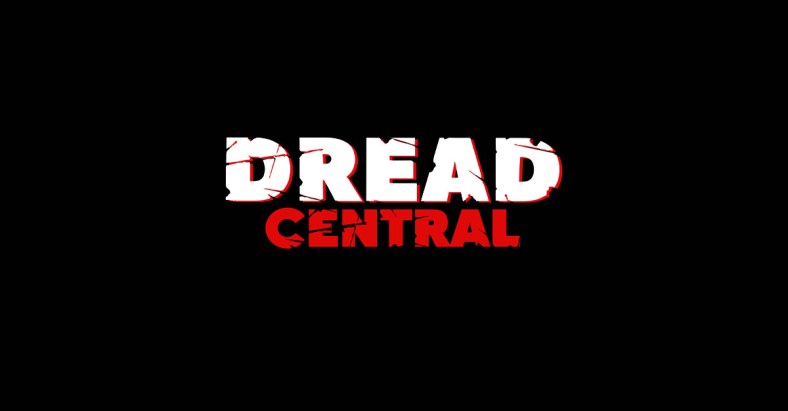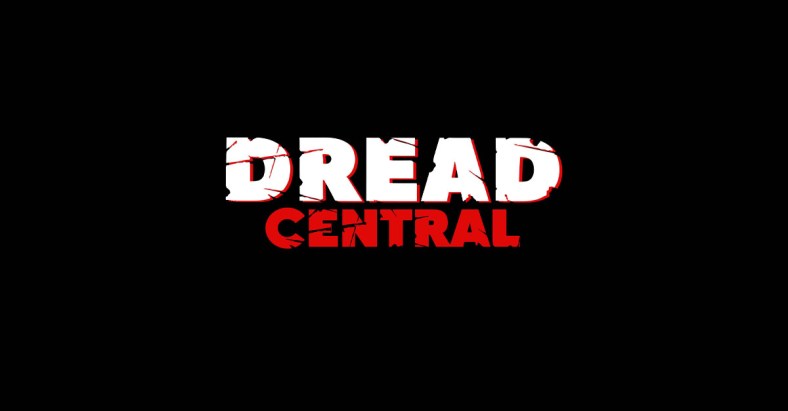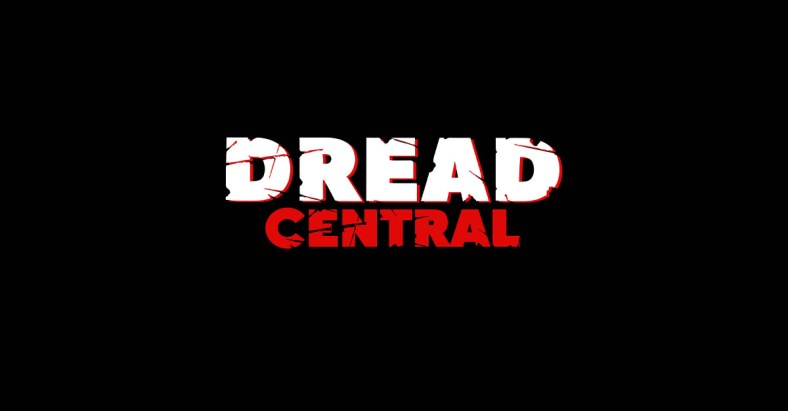Gender Bashing: The Weaponization of Patriarchal Authority In THE CLOVEHITCH KILLER

There are plenty of depictions of fatherhood in the horror genre. The Shining‘s Jack Torrance, Frailty‘s Daddy Meiks, and It’s Alive‘s Frank Davis all have implications about fatherhood and its place in the cultural consciousness. There are plenty of kind fathers in genre cinema just trying to do right by their progeny, which is what makes Pet Semetary and The Mist such a brutal gut punch. The Father Knows Best take figures into the genre often, but what’s rare is inserting that narrative into a serial killer flim that focuses on neither killer nor victim, but a loved one who discovers the killer’s secret. Enter Duncan Skiles’ sinister bildungsroman, The Clovehitch Killer.
Clovehitch is the sort of bleak coming-of-age tale that straddles genre lines alongside The Virgin Suicides, Juice, and Super Dark Times. Tyler Burnside’s (Charlie Plummer) vanilla teenage world is upended when he discovers a stash of unsettling images in his father Don’s (Dylan McDermott) truck. A subsequent sunrise snoop in dad’s padlocked tool shed reveals more than just naughty porn; a polaroid with an incriminating caption brews a suspicion that his old man is the culprit behind a decade-old series of local murders. What follows is a re-calibration of the boyhood-to-manhood tale. What should be a poignant formative youth education is filtered through a stark gaze upon the most grotesque elements of such a time in our lives.

Don is the picture of traditional manhood: Scoutmaster, pillar of the church community, chief breadwinner for his family. Following the film’s opening image of the murder victims’ memorial ceremony, the very next scene is a display of Don molding young boys into men. He coaches his troop to stand shoulder-to-shoulder during color guard ceremonies, to prevent the flag bearer from wavering. The gentle sequence immediately presents Don as a symbolic vessel for law and guidance. As the story unfolds, screenwriter Christopher Ford undermines that vessel by steeping patriarchal norms in a morbid brew of subtext. Clovehitch bears witness, with excruciating subtlety, to the collapse of the Father.
Following Tyler’s early-morning recon mission (and exposure to what might be crime scene evidence), Dad invites him out to the temple of the Father: the tool shed. Don starts out with Good Cop; he hands his kid a soda with a wink, instructing the boy not to divulge that dinner-spoiling detail to his mother. Then, adjusting his glasses, Don proceeds to administer the sex talk– you know the one. Cringeworthy as it is when we get the sex talk, it’s almost an American Pie-tier awkward rite of passage for adolescents and young teens. So it is for Tyler, but the dark revelations he’s made over the prior days have thrown a black veil over the entire speech. “Our bodies are holy” sounds facetious coming from a man who has a secret stash of clearly non-consensual BDSM photos.

“Men like you and me…we got thoughts.”
“We got God over here on one side, and we got a sex-crazed monkey over her on this side.”
Prior knowledge transforms the way Don’s lecture translates onscreen; Tyler is uncomfortably aware that it’s not simply sexy thoughts that Don is justifying (at this point, he doesn’t know what Tyler has uncovered). “A fantasy is okay, it’s not real…it’s just monkey stuff.” Fantasies are fine as long as we don’t act upon them. The same tonal upheaval enveloping the sex talk also threatens benign, idyllic sequences throughout the film: a family dinner, the parents doing dishes and dancing in the kitchen, the Scoutmaster playing with children at a church function. From Tyler’s vantage point, it’s a facade. He begins to see his father for the monster he truly is.

The truth is a bitter pill to swallow, and Tyler gags every now and then. Don is more Furious Styles than The Great Santini to his son; stern, but (up until now) principled and rooted in love. This changes dramatically during an impromptu father-son camping trip, wherein Don wields his paternal authority to stamp out Tyler’s detective work. While cleaning and preparing his hunting rifle, he confronts Tyler about the boy’s recent excursions to the shed and the crawlspace. Knowing that his son is a good Christian boy, Don takes advantage of his obedience and loyalty, manipulating the situation to scold Tyler for invading his privacy. He even calls it “disturbing.” It works; Tyler’s eyes are cast downward in silent shame and confusion until his old man denies ownership of the disturbing paraphernalia he found. Tyler whips his head around to meet his father’s gaze. A glimmer of hope for a boy who wants nothing more than to be dead wrong about the man who raised him. In a superb display of acting from McDermott, Don puts on an Oscar-caliber performance of his own. He pauses dramatically, looks away with feigned discomfort, and “confesses” that the photos, trinkets of the victims, and torture chamber blueprints belong to his disabled (through a recent car accident) brother, the one living person in the film who can’t speak for himself. Tyler is skeptical but desperate to believe that Dad ain’t bad. He convinces Don to burn the snuff smut and be done with it.
Don wasn’t done with it.

Amidst the backdrop of the drone of lawnmowers and the soothing afternoon tones of tv infomercials, Don creeps into a woman’s home and binds her before attempting to strangle her. He is interrupted by his teenage son, who points a rifle at him. Does Don confess to his crimes? Does he rush his kid and grab the rifle from him? No. Don calmly stands up, looks at Tyler with disappointment, and gently pulls his glasses from his shirt pocket. Donning the specs, Don once again resembles the man that his son looks up to and answers to every day. In that simple, non-combative move, Don flips a switch; now the person Tyler is pointing a weapon at is the person who supports him, who mentors him, and who disciplines him. Don is physically unarmed, but his weapon is drawn. He sidesteps the compromising position he’s in and goes into Scoutmaster mode. “What did I teach you? You don’t aim a weapon unless you intend to use it.” He explains it away, and…I won’t spoil what happens after that. But the pattern is consistent: ever the master manipulator (as serial killers often are), Mr. Burnside knows that he need not physically threaten his child in order to get compliance and, eventually, complicity.
It’s not the first time a horror film has had a thing or two to say about the monstrous patriarch: The Stepfather has a similar (albeit far more unstable) father figure in Terry O’Quinn’s Jerry Blake. Blake perpetually chases the American Dream, jumping from nuclear family to nuclear family in sleepy northeastern towns, turning to rage and violence when that ideal is ruptured in any way. This continues through each of the Stepfather sequels: a masculine frustration with the unattainability of domestic bliss. Of note: the antagonists of both Stepfather and Clovehitch briefly allude to having grown up with abusive fathers.
Whereas the titular Stepfather strives to reach an elusive ideal, Clovehitch‘s Don has already achieved it and strives to maintain the status quo. Whereas Blake becomes monstrous when his dream is threatened, the beast has always been within Don and now his son threatens to disrupt the harmonious double-life he leads.
As Tyler says in a final scene dripping with subtext: to the community, Don is a leader; to his household, a provider; and to him, a dad. The Gacys and the B.T.K.s of the world are the same; equally prominent in their neighborhoods and equally exploitative of their social positions. It was (among other factors) a collective idealization of those positions that enabled these men to operate for years, decades even, without scrutiny or capture. With Ford and Skiles tapping into this dynamic to drive the narrative, The Clovehitch Killer does a crackerjack job of interrogating the infallibility of the family patriarch, and that of American suburban safety.
The Clovehitch Killer is available on VOD, and is currently streaming on Hulu.
Categorized:Editorials Gender Bashing

